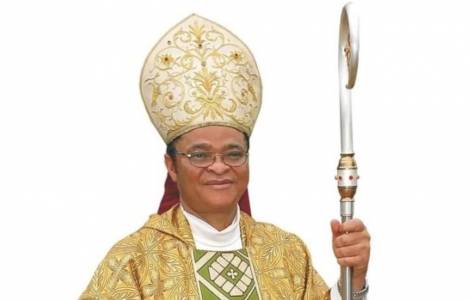
Abuja (Agenzia Fides) - "Corruption is a worrisome vice in our public life. It has gone beyond scale and measure", said the President of the Catholic Bishops' Conference of Nigeria (CBCN), Archbishop Lucius Iwejuru Ugorji of Owerri, in his homily at Mass for the day of the Nigerian Armed Forces which is celebrated today, January 15th. This vice, according to Msgr. Ugorji, "spans a very wide spectrum, ranging from bribery, embezzlement, inflation of bills, abuse of office, nepotism to the looting of public property, cultism, impersonation, false declaration, examination malpractice, alteration of date of birth, ghost worker syndrome, quackery, and manipulation”. “Corruption is corrosive, polluting, debasing, and infectious. Already contaminated, the lives of most of our people, young and old, are deeply steeped in corruption”, added the President of the Bishops' Conference. Some of the evils listed by Bishop Ugorji are well documented. An investigation conducted in 2020 by the Governor of Borno State, to monitor primary school teachers and local government employees in the state, found that as many as 22,556 “ghost workers” were on the government payroll. Of the 22,556 ghost workers, 14,762 were discovered at the local government level, while 7,794 were found to be employed by public primary schools without being teachers. This fraud costs the state government $420 million per month. Furthermore, Nigerian politicians and government officials not only collect the pensions of deceased workers, but also register migrants as voters who are placed on the government payroll in return for their vote. Another widespread scourge in Nigeria, especially in the last two decades, is the “bought examinations”, particularly at the senior secondary level, with increasing cases of examination cheating by students, teachers and parents. In every exam session there are new and sophisticated methods of cheating. On January 8, Nigerian President suspended Betta Edu, the Minister of Humanitarian Affairs and Poverty Reduction on suspicion of embezzling funds from a bank account for the ministry's financial transactions under the social welfare program. (L.M.) (Agenzia Fides, 15/1/2024)